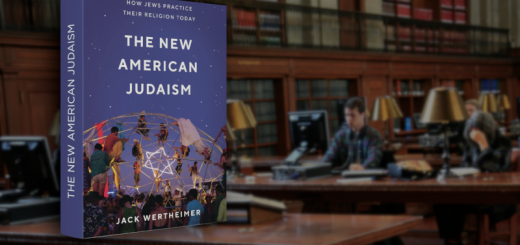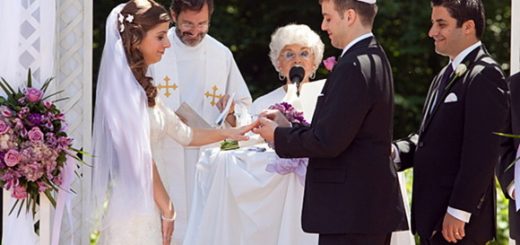Unfair to Cry “Unfair”

Jack Abramoff emerges from the courtroom wearing a black fedora, and instantly the media pounce on the fact that he is an Orthodox Jew. If he were a Roman Catholic layman, would it matter that he is a lobbyist of questionable ethical standards? If he were a Lutheran? A Baptist? Not at all. But he is Orthodox, and that is all that matters to columnists, editorialists and reporters.
Is this a manifestation of latent anti-Semitism? Perhaps there is an element of this involved, but we must also not lose sight of some mitigating factors. One of these is that out there in the world there is a great curiosity about Orthodox Judaism. Orthodoxy has always been shrouded in some sort of mystique, and was largely unknown. It is only recently that it has entered the American religious mainstream as a full-fledged participant. The natural result is that there is great interest in it, and a spotlight is cast upon its adherents – especially those who wander from the straight and narrow.
In a way, this is a kind of tribute to Orthodoxy. It is a recognition that Orthodoxy has a higher standard, and anyone who would stand under its umbrella is held – I think rightfully – to this higher standard. Were Abramoff a Conservative or Reform Jew, his religious affiliation would be of little interest. It is his Orthodoxy that makes him worthy of note.
Is this unfair? Perhaps so. But be mindful of one of the major teachings of Judaism, the concept of Hillul haShem, Desecration of the Name. This means that every Jew is responsible that the good Name of the God of Israel be preserved; he or she is bidden to behave in such a way that the good Name of God – which he represents – not be sullied, and that, on the contrary, it be sanctified. The more pious the Jew, the greater his responsibility in this regard. Those who wear the mantle of God, who are known as pious and God fearing, are held to a higher standard than those who disclaim any attachment to God or Torah. Any misbehavior on their part casts a shadow not only on them personally, but also on the Name of God to Whose teachings they claim fealty. Hillul haShem is one of the great and terrible transgressions within Judaism, just as its mirror image – Kiddush haShem, Sanctification of the Name of God – is one of the great positive mitzvot of Judaism. In today’s world, like it or not, it is the Orthodox who are considered to be the carriers of Jewish piety and Godliness, and in our all too mortal hands lies the potential of either desecration or sanctification of His Name. It may be unfair, but those are the unalterable, immutable facts of Jewish religious life.
So let us not whine because the media focuses on Abramoff’s religious affiliation. Let us rather focus on how we raise up our Orthodox children in our homes, and on what we stress in our schools, and on what we emphasize to our adults and to our returnees to the Torah world. Externals are important and crucial, yes. But attitudes and sensitivities, and qualities like Emet, honesty, and Hesed, lovingkindness and general decency and mentschlichkeit are all integral elements of the Torah life, and we ignore them at our peril. If we fail to focus on them, and the outside world points to our failings, it is unfair to cry “unfair!” – because they will have done us a service. They will have called our attention to the responsibility of being Orthodox, and the attendant gravity of Hillul ha-Shem.




Yasher Koach Rabbi Feldman, for succinctly summing up the issue at hand.
Rabbi Feldman,
Excellent I hope people will heed to what you say instead of
worrying whether someone is modern, charedi or dati leumi whether
a person wears a hat a kippa suruga or whatever. Lets spend more time
time on teaching torah and middos and doing chesed.
kol tov
Perhaps the concept of Hillul Hashem exists precisely because the Halakhah is aware of rampant anti semitism in the world (halakhah hi be-yadu’a she-Eisav soneh le-Ya’akov – it is a known precept that Eisav hates Ya’akov).
Perhaps “It is a recognition that Orthodoxy has a higher standard, and anyone who would stand under its umbrella is held – I think rightfully – to this higher standard” – is just a way that Orthodox Jews give a positive spin to world events and not what the world actually thinks.
I have never heard such an argument articulated by anybody other than Orthodox Jews. I think we need to check whether we are merely deluding ourselves into this thinking…
Clearly, we need to focus on our own betterment in many ways, but as history has shown, no matter what Jews do, or how they act – they will always be criticized.
I agree wholeheartedly. I would like to point out one related point: While Jack Abramoff’s orthodox affiliation is of greater interest to the media, a news figure’s Jewish identity independent of affiliation is rarely left out of a story. There have been so many times that my wife has asked how I knew someone to be Jewish. Simple, I respond, it said so in the article. Whether criminal defendents (see Enron), tech leaders (Andy groves or Larry Ellison), or otherwise, journalists can never seem to avoid the quick mention of a Jewish background or upbringing. I don’t think that there is any antisemitism at play at all. It is just an odd quirk of the reporting, I suppose.
It is unfortunate thought that if the news reports are correct JA used his Orthodxy as a means to attarct clients and also used his ill gotten wealth to establish kosher restuarnts and yeshivas, making his religious affiliations fair game for the media.
Kudos to Rabbi Feldman for addressing the issue that seems to have required such pilpulim when a
simple reading of the relevant Psukim, sugyos and views of Rishonim and Poskim would have led any
educated Jew to conclude that Chillul HaShem was involved herein, regardless of Abramoff’s level of
knowledge or observance.
Gut gezokt (well articulated)!
– JO
I don’t think the expectation of living up to higher standards applies so much because of Jewish orthodoxy so much as it does on one’s Jewish visibility.
For instance, I can’t call myself strictly Orthodox, because I’m not completely observant, but since I dress modestly and keep kosher, I get held to a higher standard when I’m in the company of my co-workers, because I’m the only Jew most of them have ever seen, let alone spoken to.
Anyone who remembers his adolescence will agree that religious beliefs, no matter how strongly held, don’t make anyone safe from the engines of avarice or lust. If Moses’ grandson and the prophet Yeshayahu’s grandson could so lose themselves to their dark sides, how can we be so unsympathetic to our contemporaries? Human weakness does not demonstrate religious failure, but only shows how deeply in denial a person can be about the sinfulness of his behavior and the likelihood of getting caught. While we all need to take this case to heart as an object lesson and a warning, we can all be a little less judgmental about the fallen.
I tend to agree with 1.5. I haven’t noticed anything egregious or unusual about the level of reporting on Abramoff’s Jewishness. In fact, I’ve actually been suprised at how little his Jewishness has been mentioned, considering how much Abramoff made it a part of his professional persona. If I was an antisemite, I think I’d be upset at how little the media has made of it.
If he’d been a Christian and wore a big cross, they’d make a deal out of it. He’s Jewish and wore a hat, so they made a deal out of it. I don’t see the issue there.
I certainly can say that within my family, we have many arguments, yet o our friends we seem very kind, and accepting people. It often takes a step back to appreciate what we have. I don’t think anyone likes crisizm, yet I don’t think anyone would feel bad about being expected to be a role model who is held to a higher standard. You’re words certainly are uplifting and gave me a great perspective. Just one comment to Nachum, even if your agument is true (which there is what to talk about), we still are role models for a higher life, but still a good feeling should permeate our being.
I just want to point out that I don’t think that this thought will bring about haughtiness, because being in a spot light like we are in, if we’d ever try to have a better than thou attitude, we’d get it over our heads – certainly here, thankfully.
First, we need to keep a sense of perspective here. Determination of Hillul ha-Shem ultimately is in the eye of the beholder — HaShem.
Secondly, I strongly agree with Amanda Rush’s comment. There are many Jews who, in their daily work milieu, are the only Jew their co-workers may know. In small towns throughout this country, and particularly in the Midwest and Southern “Bible Belt” communities, where virtually any Jew is considered a “spokesperson” for Judaism. Many non-observant Jews who are not knowledgeable about Orthodox, Conservative, Reform, Reconstructionist, Renewal or modern Jewish practices are asked daily about the meanings of Jewish customs, rituals and ethical requirements. In that sense, all of us — not just Jack Abramoff — live, to a certain extent, in a “fishbowl.” Is that anti-Semitism, or is it curiosity? It may be a combination. Whatever it is, it is just one more reason why every Jew should be committed to lifelong learning, so as to live in accordance with commandments which do hold us to high standards of legal and moral accountability.
David E. Abrahams
Rabbi, Congregation Etz Chaim
Fairport, NY